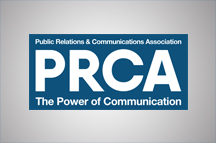The Public Relations and Communications Association (PRCA) has announced the launch of a report considering the art and science of political predictions.
It follows the PRCA Review of Political Predictions led by Andy Sawford MPRCA, Managing Partner and Co-owner, Connect Communications, former Shadow Minister, and Board of Management member, PRCA, which involved leading PR and communications industry figures, pollsters, academics, and political commentators.
The report contains a series of contributions reflecting on recent political events, such as Brexit, Trump’s victory, and Corbyn’s gains at the 2017 UK General Election. Considering the accuracy of predictions made in advance and the basis for these, such as opinion polls, the report includes an honest analysis of why many predictions were wrong and what lessons can be learned.
 On political campaigns and polling, Dr. Matt Carter MPRCA, Founder and Managing Director, Message House calls for “more modesty in the industry about the challenges of getting this right every time”. On psephology, Dr. Jansev Jemal, Research Manager, ComRes, highlights the move towards developing “a methodology involving the use of statistical modelling more akin to that we would normally use in the academic arena”. On the “Westminister Bubble”, Marshall Manson MPRCA, CEO, Ogilvy PR UK, argues that London is, in fact, the outlier and that “47% believe that people in London do not want what’s best for Britain’s future”. On non-voters, Martha Dalton CMPRCA, Managing Director, Lodestone, warns that they are economically vulnerable, potentially erratic as a segment of the electorate, and that “their relative insecurity and historic lack of rewards under centrist governments is part of the reason that this group has been attracted by big, populist changes”.
On political campaigns and polling, Dr. Matt Carter MPRCA, Founder and Managing Director, Message House calls for “more modesty in the industry about the challenges of getting this right every time”. On psephology, Dr. Jansev Jemal, Research Manager, ComRes, highlights the move towards developing “a methodology involving the use of statistical modelling more akin to that we would normally use in the academic arena”. On the “Westminister Bubble”, Marshall Manson MPRCA, CEO, Ogilvy PR UK, argues that London is, in fact, the outlier and that “47% believe that people in London do not want what’s best for Britain’s future”. On non-voters, Martha Dalton CMPRCA, Managing Director, Lodestone, warns that they are economically vulnerable, potentially erratic as a segment of the electorate, and that “their relative insecurity and historic lack of rewards under centrist governments is part of the reason that this group has been attracted by big, populist changes”.
 Launching the report on Wednesday, Sawford said: “Elections are becoming more unpredictable due to changes in voter behaviour, with less tribal politics and more variable turnout. Our review offers advice for the future, putting a health warning on ‘groupthink’, whether that is on social media or in the ‘Westminster bubble’, and cautioning on the use of data, whether looking at academic models or opinion polls. We should have a healthy scepticism of certainty and conventional wisdom and plan for all possibilities.”
Launching the report on Wednesday, Sawford said: “Elections are becoming more unpredictable due to changes in voter behaviour, with less tribal politics and more variable turnout. Our review offers advice for the future, putting a health warning on ‘groupthink’, whether that is on social media or in the ‘Westminster bubble’, and cautioning on the use of data, whether looking at academic models or opinion polls. We should have a healthy scepticism of certainty and conventional wisdom and plan for all possibilities.”
Writing in the report, Sawford concludes: “Making political predictions is not going to get any easier, but by taking account of more sources, being aware of the limitations of data, listening to different voices, and offering a broader and less binary perspective on what the future holds, political events will cause fewer surprises”.
The report launch was chaired by Stephen Doughty MP who commented: “This a very interesting and welcome report that provides valuable insights about recent political events and lessons for the future”.
Essay topics include:
- Financial markets and political risk spectrums;
- Modern election campaigns and the challenge they present to political polling;
- Social media lessons from the 2015 UK General Election;
- Paradigm shifts in polling and forecasting in the age of rapid changes;
- The “London Bubble” and recognising the city as an outlier;
- Addressing uncertainty in research and statistics when making political predictions;
- Learning points from the past year of wrong predictions;
- The unique place of academics in politics and elections;
- Understanding non-voters and their place in the electorate;
- The rise of political uncertainty and geo-political risk in boardrooms.
Contributors to the report represent views from organisations across PRCA membership, wider industry, polling industry, and the broader political landscape that have been vocal about the issue: Iain Anderson FPRCA, Co-Founder and Executive Chairman, Cicero Group; Dr. Matt Carter MPRCA, Founder and Managing Director, Message House; Emma Pointer MPRCA, Account Director, Weber Shandwick; Dr. Jansev Jemal, Research Manager, ComRes; Marshall Manson MPRCA, CEO, Ogilvy PR UK; James Endersby, Managing Director and Partner, Opinium; Adam Drummond, Senior Research Manager and Partner, Opinium; Lionel Zetter FPRCA, Chairman, PRCA Public Affairs and Lobbying Group; Professor Simon Goldsworthy FPRCA, Centre for the Study of Persuasive Industries, Richmond University; Martha Dalton CMPRCA, Managing Director, Lodestone; and James Turgoose MPRCA, Managing Director, JBP.














